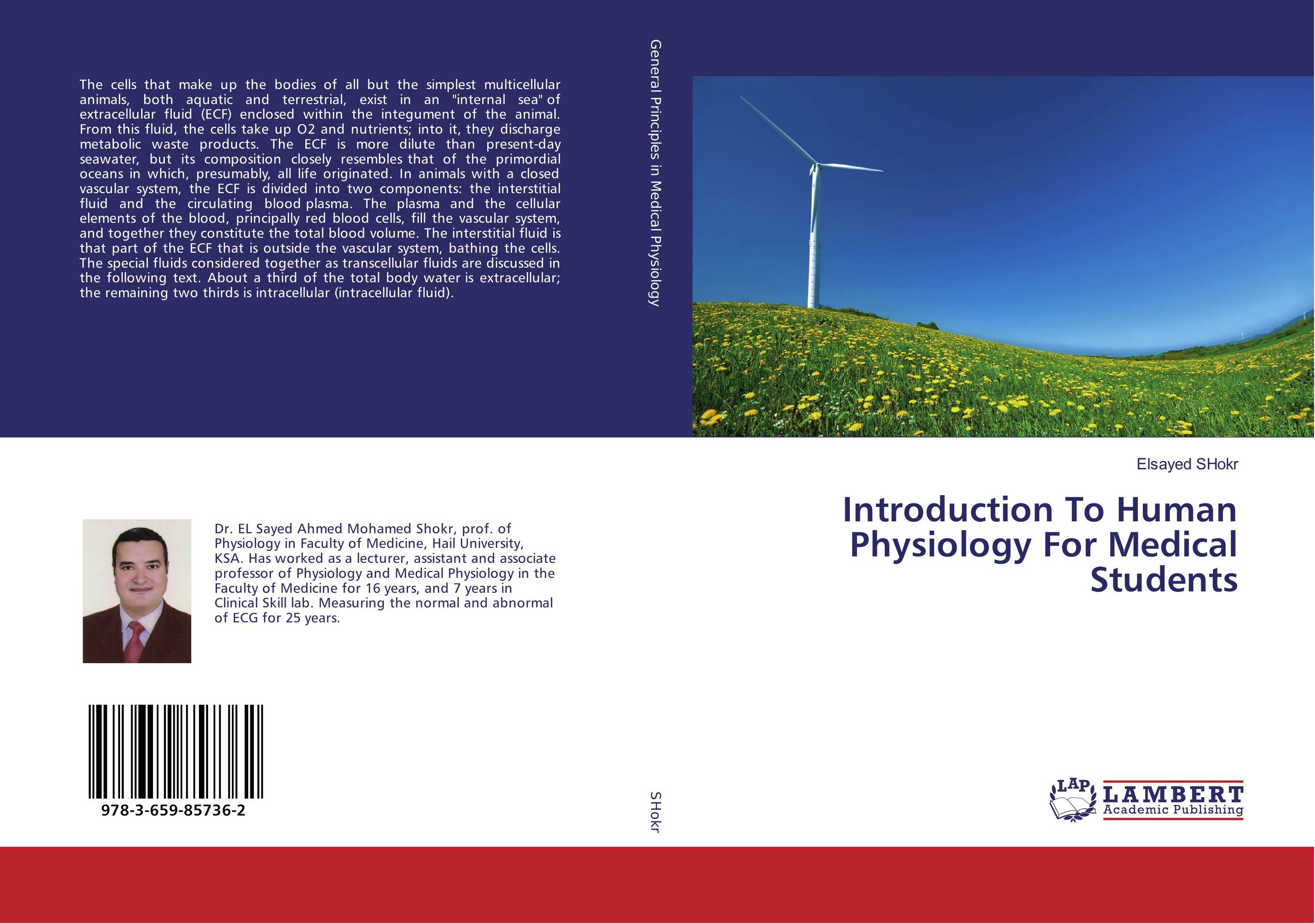| Поиск по каталогу |
|
(строгое соответствие)
|
- Профессиональная
- Научно-популярная
- Художественная
- Публицистика
- Детская
- Искусство
- Хобби, семья, дом
- Спорт
- Путеводители
- Блокноты, тетради, открытки
Introduction To Human Physiology For Medical Students.

В наличии
| Местонахождение: Алматы | Состояние экземпляра: новый |

Бумажная
версия
версия
Автор: Elsayed SHokr
ISBN: 9783659857362
Год издания: 2016
Формат книги: 60×90/16 (145×215 мм)
Количество страниц: 292
Издательство: LAP LAMBERT Academic Publishing
Цена: 52261 тг
Положить в корзину
| Способы доставки в город Алматы * комплектация (срок до отгрузки) не более 2 рабочих дней |
| Самовывоз из города Алматы (пункты самовывоза партнёра CDEK) |
| Курьерская доставка CDEK из города Москва |
| Доставка Почтой России из города Москва |
Аннотация: The cells that make up the bodies of all but the simplest multicellular animals, both aquatic and terrestrial, exist in an "internal sea" of extracellular fluid (ECF) enclosed within the integument of the animal. From this fluid, the cells take up O2 and nutrients; into it, they discharge metabolic waste products. The ECF is more dilute than present-day seawater, but its composition closely resembles that of the primordial oceans in which, presumably, all life originated. In animals with a closed vascular system, the ECF is divided into two components: the interstitial fluid and the circulating blood plasma. The plasma and the cellular elements of the blood, principally red blood cells, fill the vascular system, and together they constitute the total blood volume. The interstitial fluid is that part of the ECF that is outside the vascular system, bathing the cells. The special fluids considered together as transcellular fluids are discussed in the following text. About a third of the total body water is extracellular; the remaining two thirds is intracellular (intracellular fluid).
Ключевые слова: blood, Cardiovascular system, digestive system, Endocrinology, Kidney, Reproduction, Respiratory system, I General Principles in Medical Physiology, Systems of human body, Autonomic Nervous System, Physiology of muscle, Immunity and Lymph, CENTERAL NERVOUS SYSTEM



